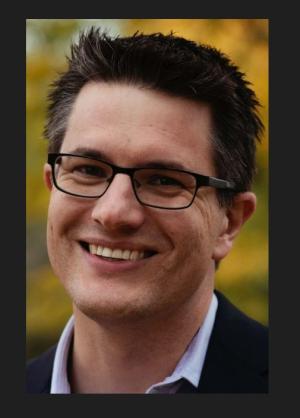When it comes to protections from natural disasters for reverse mortgage borrowers, Rep. Kyle Brown (D) is on a mission. Brown, who represents Colorado’s 12th district covering Boulder County, recently vowed to introduce new state legislation to protect reverse mortgage borrowers after a constituent had his reverse mortgage loan enter into foreclosure after the home was destroyed in a wildfire.
Brown spoke to us about what he hopes to accomplish by rectifying an issue that previous Colorado legislatures failed to address.
Protection from natural disaster
While 80-year-old Ed Sharp was recently notified that the foreclosure had been rescinded, there is still work to be done to keep natural disaster victims in Colorado who have reverse mortgages out of foreclosure, according to Brown.

“We’ve been having this discussion in Boulder County and across Colorado for a number of years now, in the wake of the 2013 floods that affected Boulder County and other parts of the state,” Brown said. “It’s my understanding that there were homes foreclosed upon that had reverse mortgages, and there was a bill at the time.”
That bill was passed by the state assembly but it did not survive the state’s senate. Had it passed, it would have allowed for an increase from one to five years for reverse mortgage borrowers who are impacted by natural disasters to live outside the home.
“That failed that six years ago, and in the wake of the Marshall Fire, we’ve seen a similar action be taken by a mortgage lender,” Brown said.
As such, there is a need to address the issue for future disasters that could impact vulnerable seniors, Brown said.
“I’ve committed to reintroduce that bill if allowed to by House leadership,” he said. “I’ve committed to reintroducing a new version of the bill that would extend the time period when someone could be out of their home, assuming that home was destroyed. The basic principle here is that no one should have their home foreclosed upon, simply because they lost it in a national disaster.”
Interactions between state and federal law
When it comes to how a similar bill could interact with the Home Equity Conversion Mortgage (HECM) program administrated by the Federal Housing Administration (FHA), Brown said that mortgage lenders fall under the state’s regulatory purview. In turn, lenders would be required to abide by the bill if it becomes law.
“We regulate lenders here in Colorado [in addition to] the federal government,” he said. “We also have a particular provision of law that already makes exceptions to the reverse mortgage process. For instance, when a person doesn’t need to live in their home when they have a reverse mortgage. That already exists in Colorado law, and this would be in addition to that particular protection in our state law.”
Sarah Bolling Mancini, a National Consumer Law Center (NCLC) attorney and reverse mortgage legal expert, said it’s important to understand that natural disasters do not typically push reverse mortgage borrowers into foreclosure.
“Under normal circumstances, if the home is not habitable, that is okay as long as the borrower still treats it as their principal residence and intends to return once the repairs are made,” she said. “I think that’s an important fact for people to understand. I just don’t want to give the misimpression that there are tons of people getting foreclosed on because their home was destroyed by a natural disaster.”
Working together
When asked if he would work with an organization like the National Reverse Mortgage Lenders Association (NRMLA) on the issue, Brown said he welcomed the opportunity.
“I’m more than happy to speak with them,” he said. “I will say that I joined the legislature about a month ago, so this issue has only started within the last couple of weeks. So we’re just getting into this issue, but I’m more than happy to work with the industry and the mortgage lenders to craft a proposal that will be protective. I don’t think it’s anyone’s intention that someone will lose their home through no fault of their own.”
Brown also noted that he hopes federal lawmakers will consider similar natural disaster protections for reverse mortgage borrowers.
“I would encourage the federal government to consider similar protections,” he said. “It takes a while for folks to rebuild their home. And so, even though I know the federal protections are for about a year, insurance companies generally give people two years where they’re paying for what’s called ‘alternative living expenses.’ So they’re expecting people to be out of their homes in the event of a total loss for up to two years at least. So, I would encourage the federal government to consider similar protections.”



